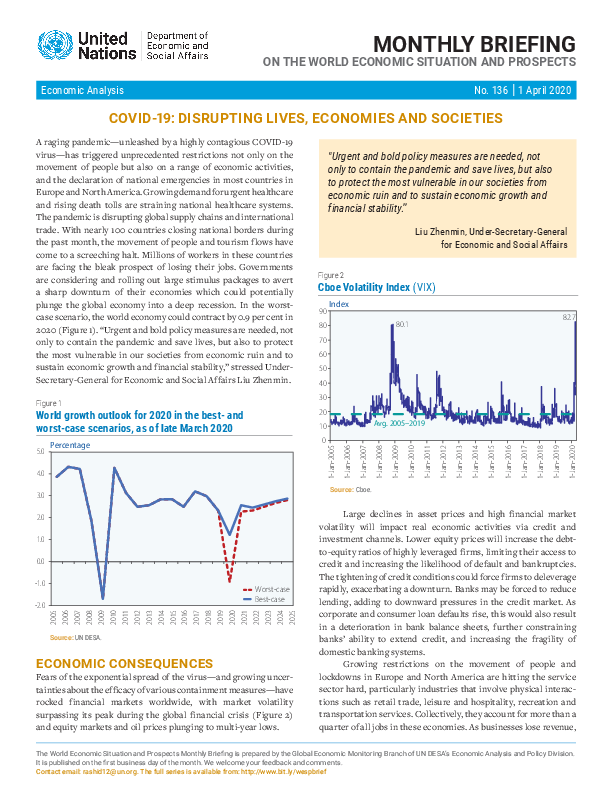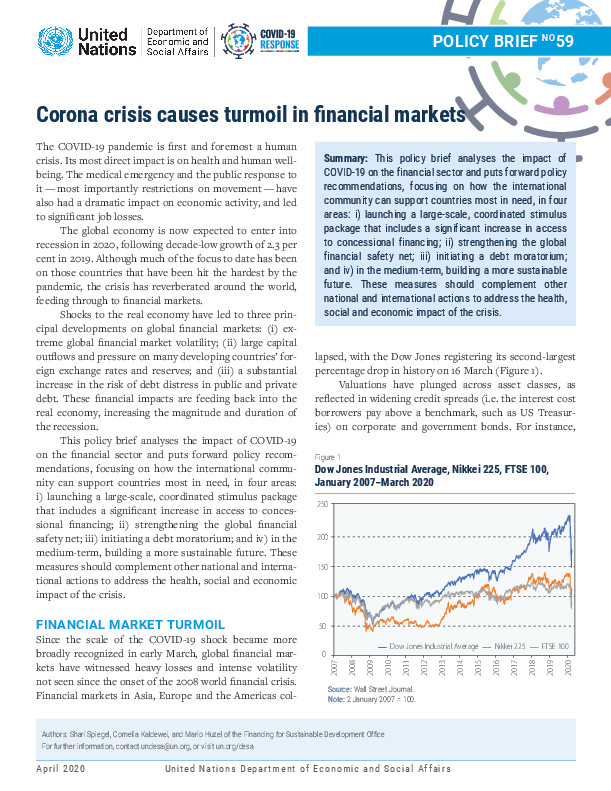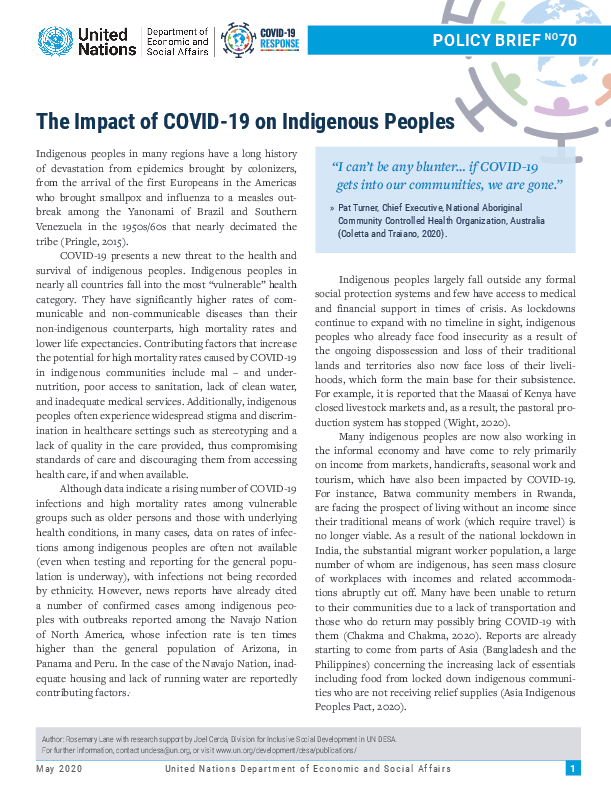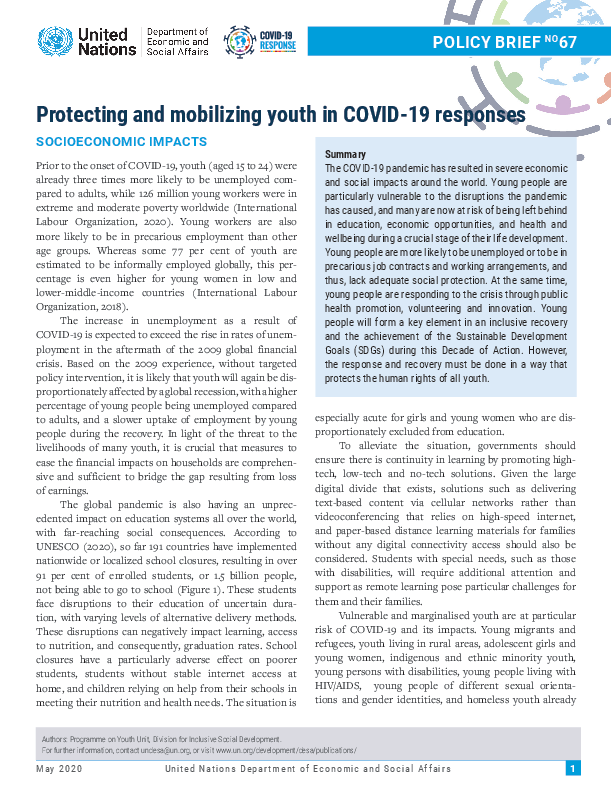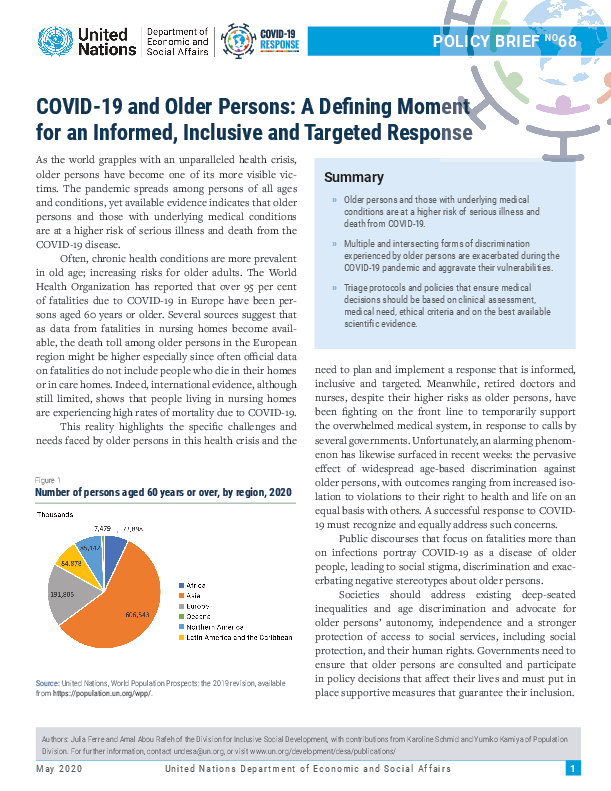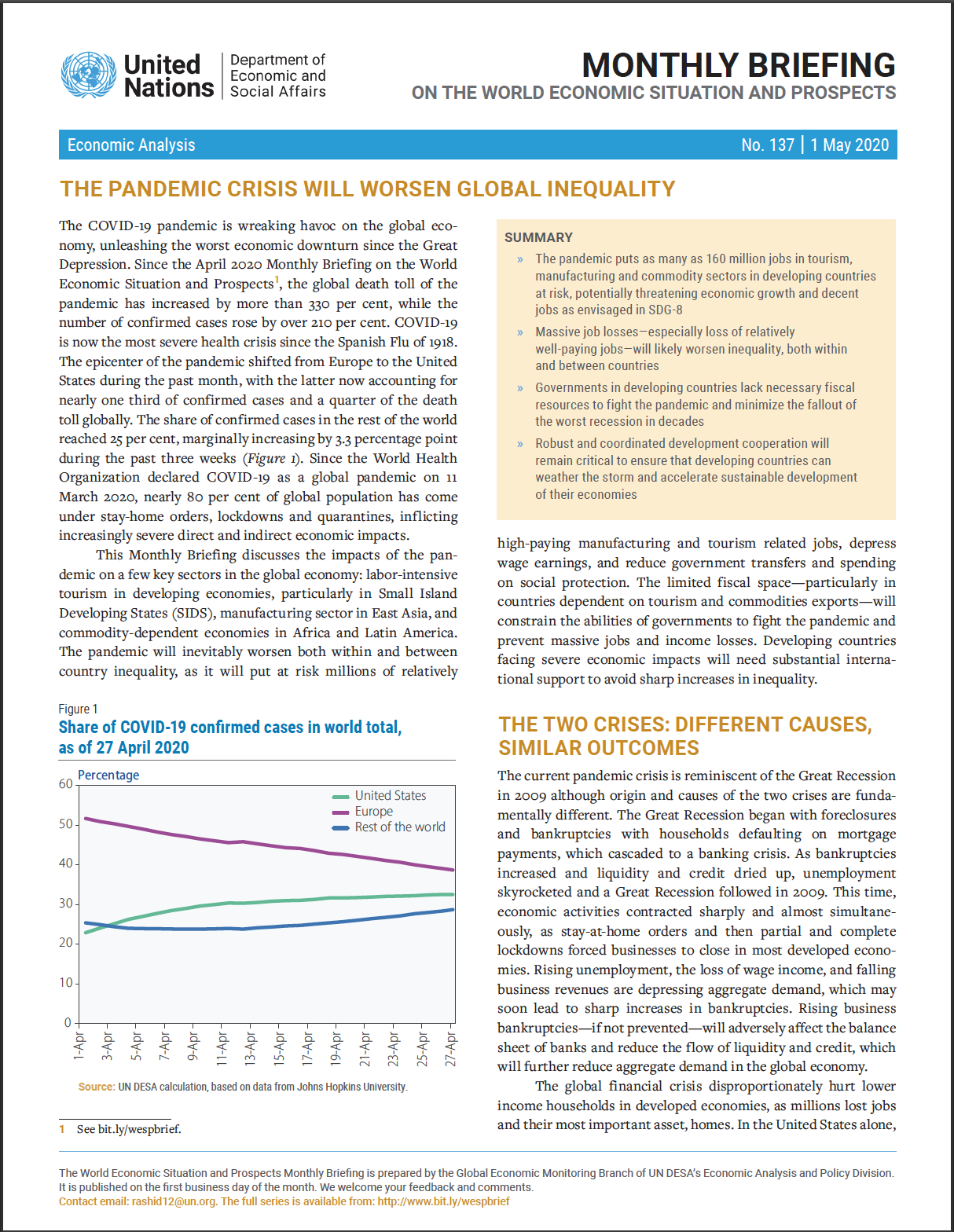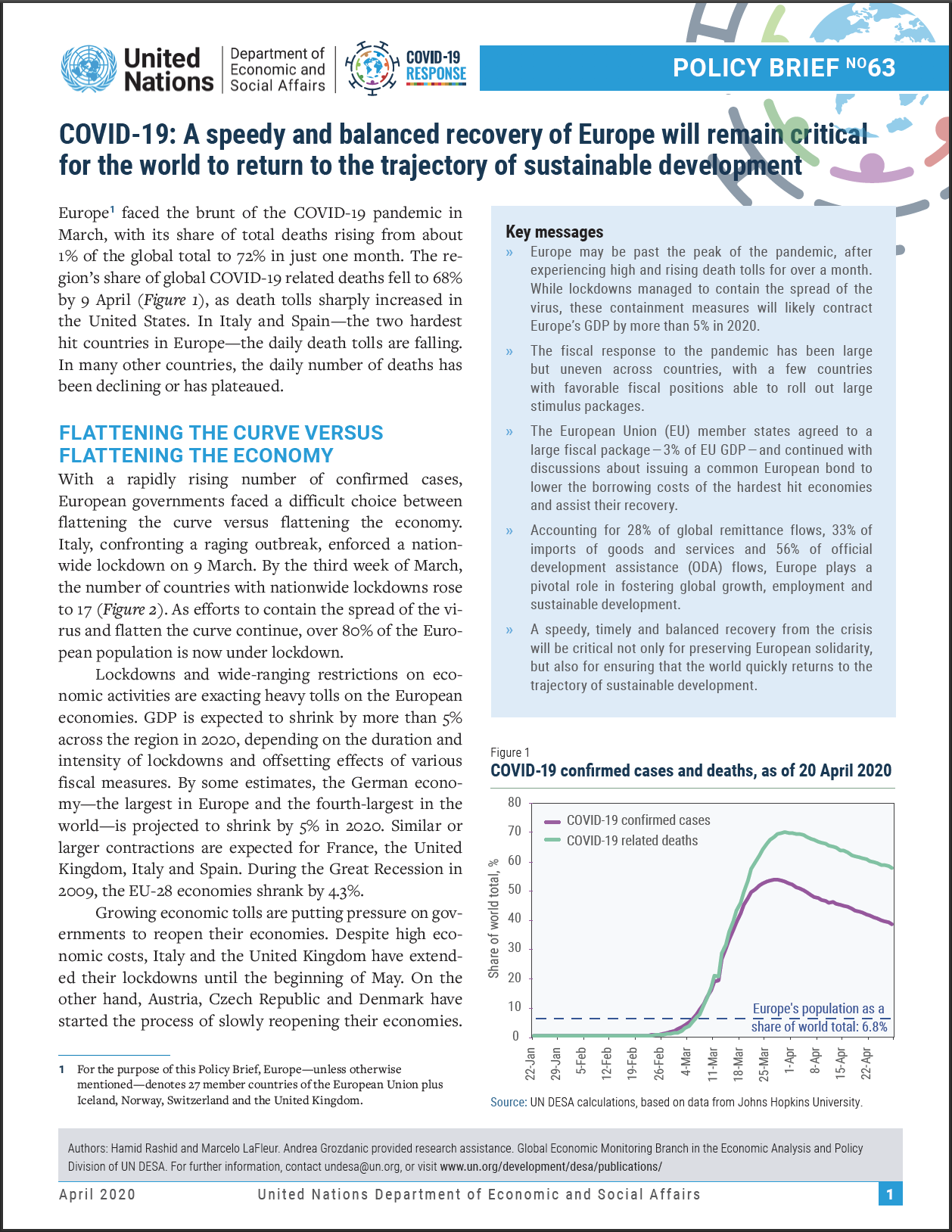Publications
Displaying 281 - 290 of 1105
Place: UNHQ, New York, USA Documents Agenda Report of the Committee for Development Policy (E/2020/33, Supplement No. 13)
عربي, 中文, English, Français, Русский, Español Outcome of the comprehensive review of the LDC criteria Opening statements Statement by Liu Zhenmin, Under-Secretary-General for Economic and Social Affairs Statement by Mona Juul, President of the United Nations Economic and Social Council Open session on New Inequalities Link to the event page Event flyer Presentations by panelists:
Arunabha Ghosh
Jose Antonio Ocampo The event was live streamed and can be watched at: UN Web TV Briefing to Delegates on…
 Welcome to the United Nations
Welcome to the United Nations
